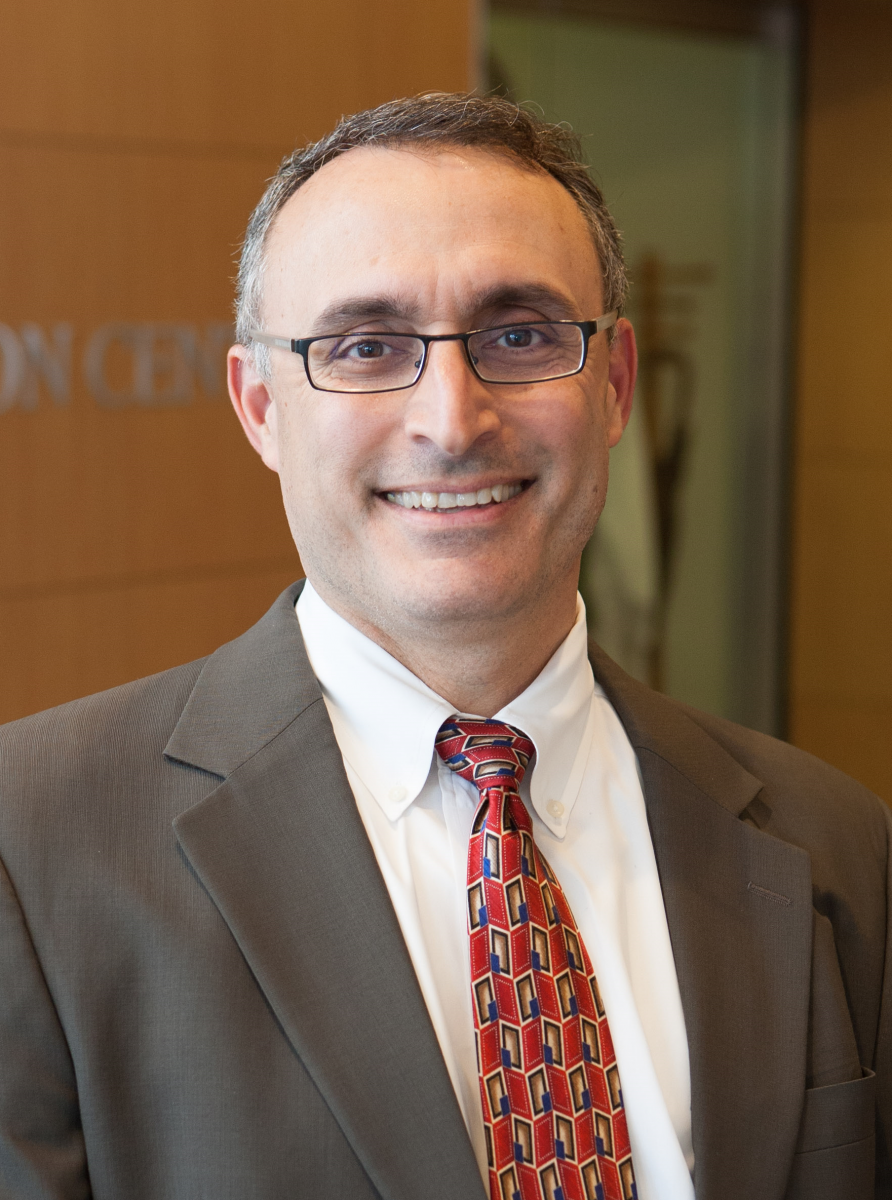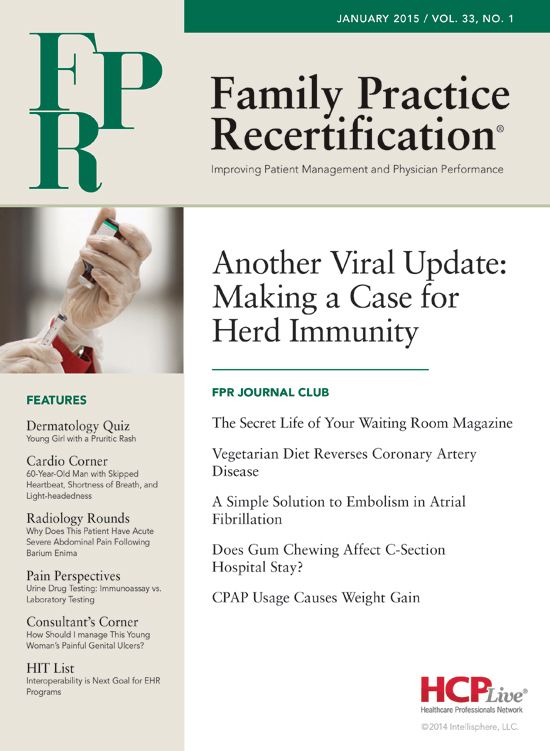Does Gum Chewing Affect C-Section Hospital Stay?
This Meta-Analysis found chewing gum use following cesarean section decreased a variety of complications"

Frank J. Domino, MD
Review
“Mediterranean Diet and Telomere Length in Nurses’ Health Study,” BMJ 2014; 349:g6674.
This was a meta-analysis of randomized controlled trials to determine if chewing gum decreased a variety of post-operative ileus complications following cesarean section.
Study Methods:
Meta-analyses of randomized trials were conducted to determine the influence on gut motility resulting from gum chewing in the post-operative time period. This included time to first flatus, time to bowel sounds, time to passing first stool, and length of hospital stay (LOS).
Results & Outcomes:
Six randomized controlled trials were identified including almost 1,000 women. Gum chewing was superior to no gum chewing in the reduction of time to first flatus (6.42 hours, 95% CI, -7.55 to -5.29). Time was also reduced for first bowel sounds (3.62 hours, 95% CI, -6.14 to -0.83) as well as time to first stool (6.58 hours, 95% CI, -10.10 to -3.07). Most strikingly, LOS was reduced by 5.9 hours (95% CI, -9.39 to -2.49).
Conclusion:
Chewing gum in the post C-section period led to early recovery of bowel motility, bowel function, and significantly shorter LOS for women after a cesarean section. The intervention was both highly safe, extremely inexpensive, and improved patient outcomes.
Commentary:
Post-operative ileus is a common complication after most intra-abdominal surgery. Its adverse effects are vast and finding an inexpensive and safe method to lower the time until normal bowel function would be ideal.
A variety of small studies have identified that post-operative feeding can stimulate bowel motility following intra-abdominal surgery. Doctors and patients are both reluctant to consider early feeding because of the potential for vomiting as well as aspiration.
For this study gum chewing is considered a form of “sham feeding,” as it is something that is chewed but it does not provide food to enter the gastrointestinal tract. The literature has other studies that have demonstrated that sham feeding can stimulate bowel motility, and have been shown to increase levels of humoral factors that subsequently increase function of the gastrointestinal tract.
Two other recent meta-analyses have looked at gum chewing following intra-abdominal surgery and found that it reduces post-operative ileus time. This study was the first to approach the topic using meta-analysis techniques to determine if gum chewing had a positive impact on post-operative ileus following cesarean section. Its efficacy was clearly demonstrated with a significant reduction in hospital LOS.
Some limitations of the study are that some of the studies did not report method of randomization and did not report adequate blinding and concealment. Additionally, amount and length of gum chewing regimens were not standardized, and the type of gum used varied from study to study.
Because only a few studies were found to meet the inclusion criteria the ability to determine if publication bias was present is limited. Also, not all studies had a placebo comparison group so it remains unclear if this was an effect of the gum chewing itself or if there was something special about some of the gums that made it more effective.
Either way, this study will likely provide a simple, safe, and inexpensive method providers can offer their patients in a post C-section period. It will increase their bowel function and decrease their LOS. This is a “win-win” outcome and may soon be adopted everywhere.
About the Author
Frank J. Domino, MD, is Professor and Pre-Doctoral Education Director for the Department of Family Medicine and Community Health at the University of Massachusetts Medical School in Worcester, MA. Domino is Editor-in-Chief of the 5-Minute Clinical Consult series (Lippincott Williams & Wilkins).
Additionally, he is Co-Author and Editor of the Epocrates LAB database, and author and editor to the MedPearls smartphone app. He presents nationally for the American Academy of Family Medicine and serves as the Family Physician Representative to the Harvard Medical School’s Continuing Education Committee.
